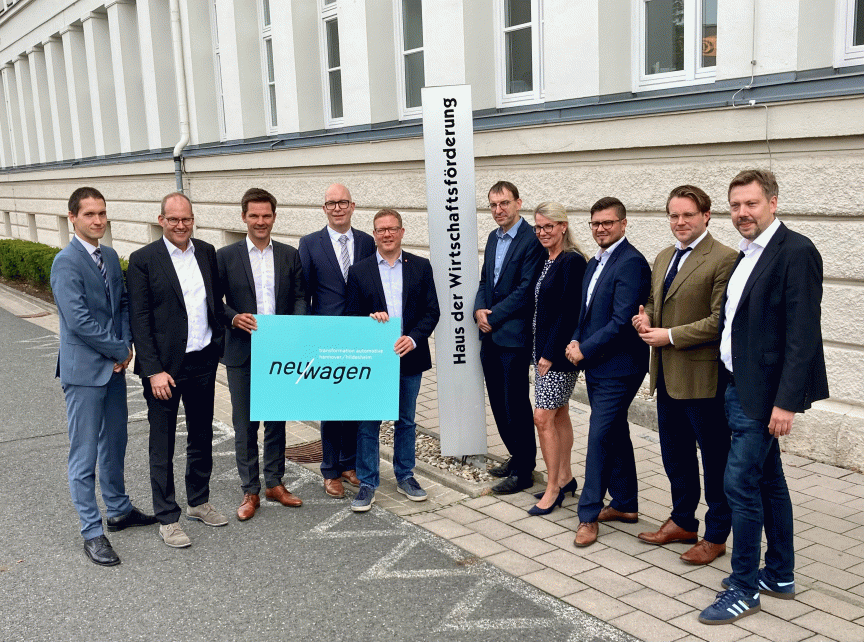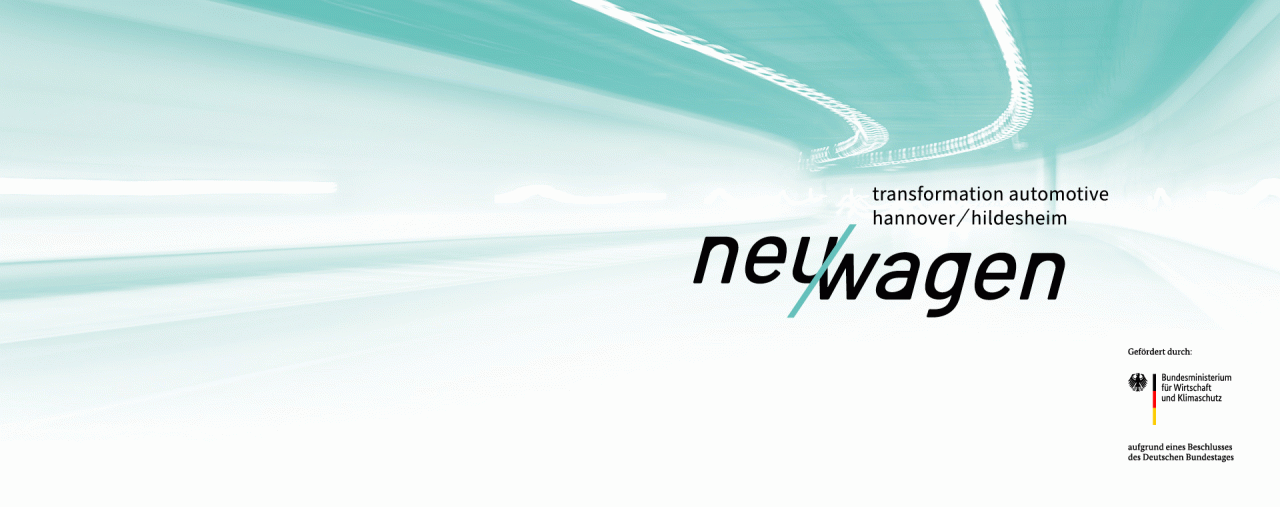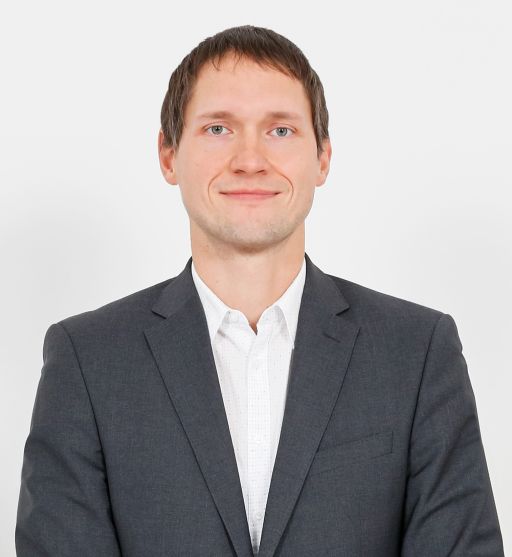"new/car": Region & partners get automotive project rolling
 Hanover Region
Hanover Region Daring to try something new with "neu/wagen": Companies in the automotive and supplier industry are currently facing the challenge of asserting themselves in global competition with CO2-neutral and resource-saving processes and products. In order to achieve this, the Hannover Region's Economic and Employment Promotion Agency, together with partners from business, science and interest groups, has set up a network to support companies in the automotive industry in Hannover and Hildesheim in their transformation processes.
The Federal Ministry for Economic Affairs and Climate Protection (BMWK) is funding this project with around four million euros. Today, Region President Steffen Krach presented the "neu/wagen" project together with the network partners.
"The automotive industry is currently undergoing a process of transformation: towards new technologies, new business models and new qualifications. We want to support companies in implementing all relevant trends and have brought together a network of strong partners to do so," said Regional President Krach. "I am delighted that, in addition to good contacts, we can also provide the companies with a great deal of expertise and specialist input - this shows just how much innovative strength Hannover has to offer as a location."
 Hanover Region
Hanover Region In addition to the Hannover Region's Economic and Employment Promotion Agency as the lead partner, the joint economic development agency of the city and region, hannoverimpuls, and the Hildesheim Economic Development Agency are also represented in the network. Leibniz Universität Hannover, Hannover University of Applied Sciences and Arts, IG Metall Hannover and NiedersachsenMetall are also involved in the project as strategic partners.
"Mobile applications with climate-neutral energy sources, the use of components based on a circular economy, ecologically and socially sustainable production, hybrid business models through intelligent systems: These are the challenges of tomorrow in the automotive industry, for which we are already developing smart solutions at the location today," said Ulf-Birger Franz, Head of Economic Affairs. In addition to the development of new technologies, Franz also sees the structural transformation as important: "The companies concerned are faced with the task of taking their employees with them on the path to the future of the automotive industry through suitable training and further education measures," says Franz.
The project will initially run for three years and includes several working groups in which the network partners will develop climate-friendly methods together with innovative companies. The focus is on four trends:
- The use of drive systems that enable mobility without the emission of CO2 , for example on the basis of batteries, fuel cells or hydrogen-powered combustion engines.
- Approaches that aim to cover as much of the resource requirement as possible via material cycles , for example by using bio-based or recycled materials.
- The conversion of production to socially and ecologically sustainable methods such as the use of machine learning or collaborative robots.
- The use of digital technologies to adapt business models and meet the increasingly individual wishes of customers.
So-called meetups, i.e. working meetings at which new technologies are presented, an insight into new markets and market segments is provided and methods of qualification, training and further education are imparted, are intended to facilitate the exchange between representatives of the automotive industry. In addition to the meetups, the project team also organizes workshops for specialists and managers.
Three are already being planned: the "Artificial Intelligence" workshop will teach participants about the possibilities offered by the use of neural networks and machine learning in production. A second workshop will illustrate the use of 3D printing processes, e.g. for the production of particularly lightweight automotive components. Another workshop will explain the possibilities and pitfalls of using lightweight robots and implementing cobots.
Further information can be found at www.wirtschaftsfoerderung-hannover.de/neuwagen
Contact Us
Dr. Michael Merwart
Hanover region
Economic development
Department of Economic Development and Employment Promotion

